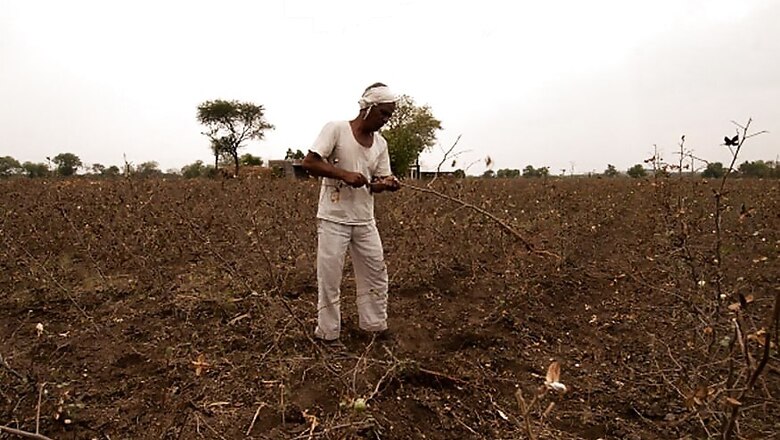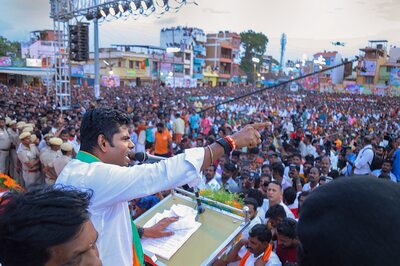
views
Beed: Tragedy struck early on a 2015 December morning for the Burkul family in Kasari village of drought-hit Marathwada.
Bandu Sahibrao Burkul left as always to milk the buffaloes but did not return. His wife Sobhabai's went out to look for him and found him hanging from a neem tree. Burkul's death left her to fend for herself and her three children alone.
"My father had gone to get milk," says her son Subham, breaking down as the memory of that day overwhelmed him.
Their father had taken two loans of Rs 50,000 each from a bank and a private finance company for his farm and home. For two years the monsoon failed, ruining his cotton crop and turning his maize plants into cattle fodder.
Barely 11-years-old, and a bright student, Subham is struggling to assume the role of a bread earner. There is no way Sobhabai can bear the expenses of the three children by herself. In another painful separation, Subham's uncle sent him and his brother Suhas to a charitable school in Pune.
"I have no idea how we will survive. When he was here, he took care of everything," says Sobhabai.
Her daughter Sheetal studies in class 9 and has always been among the top three in her class. She is conscious that the assistance of Rs 1 lakh by the state government will not last for long.
In any case, the rules say Rs 70,000 have to be kept in a fixed deposit for five years.
As the months rolled by with no sign of rain, Maharashtra's Marathwada region, already known as the drought capital, turned into a suicide capital.
More than 1430 farmers have committed suicide since January 1, 2015, leaving more than 3500 children at the mercy of fate. It is a different thing that even if you add up all their debts, it will only be a fraction of what a big corporate defaulter owes a PSU bank.
At a charitable school in Aurangabad more than 200 children whose fathers committed suicide are from drought-hit areas of Marathwada. Among them Ganesh Bhagwat Tunde, who has just entered into his teens, had to deal with the trauma of seeing his father commit suicide by hanging.
"My father had taken a loan for my sister's marriage. We had two acres of land but the cotton crop failed " says Ganesh. Unable to pay back the money, his father killed himself a month after his sister's wedding and the boy ended up at the charitable school.
Two other boys, Vitthal and Gnyandeo, who are not yet 10 years of age, are at the same school with their sisters. Gyandeo's mother abandoned him and his six-month-old sister after their father committed suicide four years ago.
"We had to study, so we came here," his friend Vitthal speaks for both of them.
Vaibhavi Dnyaneswar Suryavansi, who is in the same school with her three sisters, remembers the date her father gave up on his life - November 28, 2015.
"My father committed suicide, I want to tell others not to do that. Because if they do, their families are robbed of happiness forever," says Vaibhavi.
The mood at the school is gloomy. In the background one can hear the strains of a ditty about a child's search for his mother's letter. When the new session begins in 2016, the school expects more children from suicide-hit families.
"There is a need to bring out children from the environment of despair in their families," says school principal Shyam Kanke.
While the children try to build their lives at the Aurangabad school, their families in drought-hit villages struggle.
Says Mudrukbai from Kasari village, " Even when my husband was alive, it was difficult. Now it is even more so. It is good that my son is away. At least he will study." Their land did not yield even two sacks of bajra in early 2016 and the family does not have a ration card.
In Marathwada, farmers who commit suicide are mostly in their thirties. Their wives have to raise the family on their own, an impossible task during times of drought.
District authorities argue that suicide rates have come down in 2016. But the improvement that they claim is not perceptible.
The system still extends no respite for the poor farmers who fight a losing battle against the vagaries of nature. For the farming community there is a drought of justice in Marathwada.




















Comments
0 comment